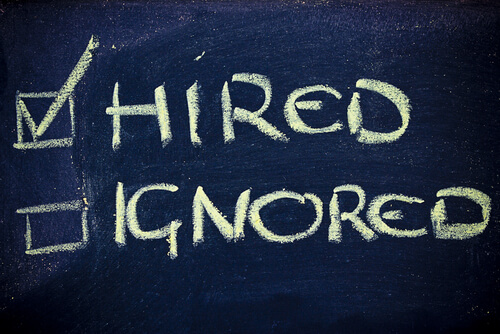 Many job seekers spend time on perfecting their resumes, but when it comes time for the cover letter, quickly write a couple paragraphs and send it out to every employer. If you’re serious about getting a job, a hiring manager won’t consider you without a polished, professional cover letter as well. Here are a few common mistakes to avoid:
Many job seekers spend time on perfecting their resumes, but when it comes time for the cover letter, quickly write a couple paragraphs and send it out to every employer. If you’re serious about getting a job, a hiring manager won’t consider you without a polished, professional cover letter as well. Here are a few common mistakes to avoid:
Long, wordy cover letters. Employers and hiring managers are already reading dozens of resumes and cover letters, so they usually don’t want a fancy, complicated letter that’s difficult to follow. It’s best to state what position you’re applying for, what key skills and experiences you have that make you qualified for it, and what you have to offer that position. It’s best to get to the point and not summarize all of your experiences.
Summarizing or repeating what’s on your resume. Your cover letter should not be repeating everything on your resume, but rather putting your resume in context and highlighting the key achievements and skills you have that will make you the best candidate for the position. Your cover letter should entice employers to want to read the whole of your resume.
Sending generic cover letters to multiple employers. Your cover letter is the place you specifically state which position you are applying for and what makes you a good candidate for the position. Hiring managers can tell when you’re using a generic letter for dozens of positions and this doesn’t convince them that you’re serious about the job or really want it. You should personalize every cover letter you send out and personally address the letter to either the hiring manager or HR administrator interviewing you, or try to find out the name of the manager or supervisor you would work under should you get hired.
Failing to specify the position you’re applying for. Even if you address the company you’re applying to but not the particular position, you could be limiting yourself. Unless this is a general inquiry for consideration, you should talk about the experience you have relating to the specific job functions of the position. The employer is laying out for you what they’re looking for in the job advertisement so make it easy and clear for them to see how you’re a good match.
Typos or wrong information. Like your resume, your cover letter suggests to employers the quality of work you will produce if hired. If your cover letter is full of typos, grammatical errors or old contact details, this can show laziness or lack of professionalism.
Talking about your personal life or salary expectations. Your cover letter should be focused on how your professional experience can serve as an asset to the company. Don’t add personal information that isn’t related to the job you’re applying for. You should keep it professional and never bring up salary expectations in the cover letter.



